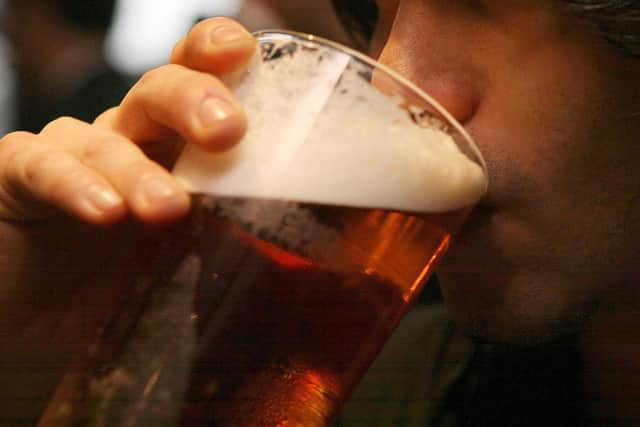Thousands of years of life lost to alcohol-related deaths in Wigan
and live on Freeview channel 276
It comes after the number of people who died from excessive alcohol consumption across England soared during the coronavirus pandemic.
Alcohol awareness charity Drinkaware said the statistics are "devastating" and urged the Government to create a nationwide alcohol strategy to reduce the damage caused.
Advertisement
Hide AdAdvertisement
Hide AdOffice for Health and Improvement Disparities figures show premature deaths from alcohol-related conditions led to a potential 3,125 years of life being lost in Wigan in 2020 – though this was down from 3,811 in 2019.


Of these, 2,048 (66 per cent) were as a result of alcohol-related deaths among men, and 1,077 (34 per cent) among women.
Across England, 293,980 years of life were lost due to alcohol-related conditions in males in 2020.
This fell to 138,060 years among females, though both are at their highest level since records began in 2016.
Advertisement
Hide AdAdvertisement
Hide AdPotential years of life lost are calculated by multiplying the total number of alcohol-related deaths occurring at each age by the number of remaining years left to live, according to life expectancy estimates.
Alcohol-related deaths include those specifically caused by alcohol, such as alcoholic liver disease, and diseases made more likely by extensive alcohol consumption, including heart disease or various types of cancer.
Karen Tyrell, chief executive of Drinkaware, said: "These statistics are absolutely devastating, each number masking an individual family tragedy.
"We also know that the heaviest drinkers drank more during the pandemic, and warning signs were missed as people saw each other less and were less able to access support.
Advertisement
Hide AdAdvertisement
Hide Ad"This created a perfect storm and we are now seeing the consequences."
Separate Office for National Statistics figures show that deaths as a direct result of alcohol consumption rose during the pandemic.
Across England, there were 7,600 alcohol-specific deaths in 2021 – the highest number since records began in 2001 and a 30 per cent increase from 2019, the last full year before the pandemic.
In the North West, 1,344 people died from alcohol-specific causes – up from 1,013 in 2019 and also a record.
Advertisement
Hide AdAdvertisement
Hide AdIt meant 18.9 per 100,000 people in the region died due to alcohol in 2021.
The ONS said: "Alcohol-specific deaths have risen sharply since the onset of the coronavirus pandemic, with alcoholic liver disease the leading cause of these deaths.
"This rise is likely to be the result of increased alcohol consumption during the pandemic.
"Research has suggested that people who were already drinking at higher levels before the pandemic were the most likely to have increased their alcohol consumption during this period."
Advertisement
Hide AdAdvertisement
Hide AdDrinkaware is now urging Health Secretary Steve Barclay to come together with experts to create a new coordinated UK-wide alcohol strategy.
The Department for Health and Social care said it is taking action to "support those most at risk, with a strong programme under way to address alcohol harms in the UK which has already helped tens of thousands of people".
A spokesperson said it has invested £93m to rebuild drug and alcohol misuse treatment and services in England and increase the availability of inpatient detoxification beds.
